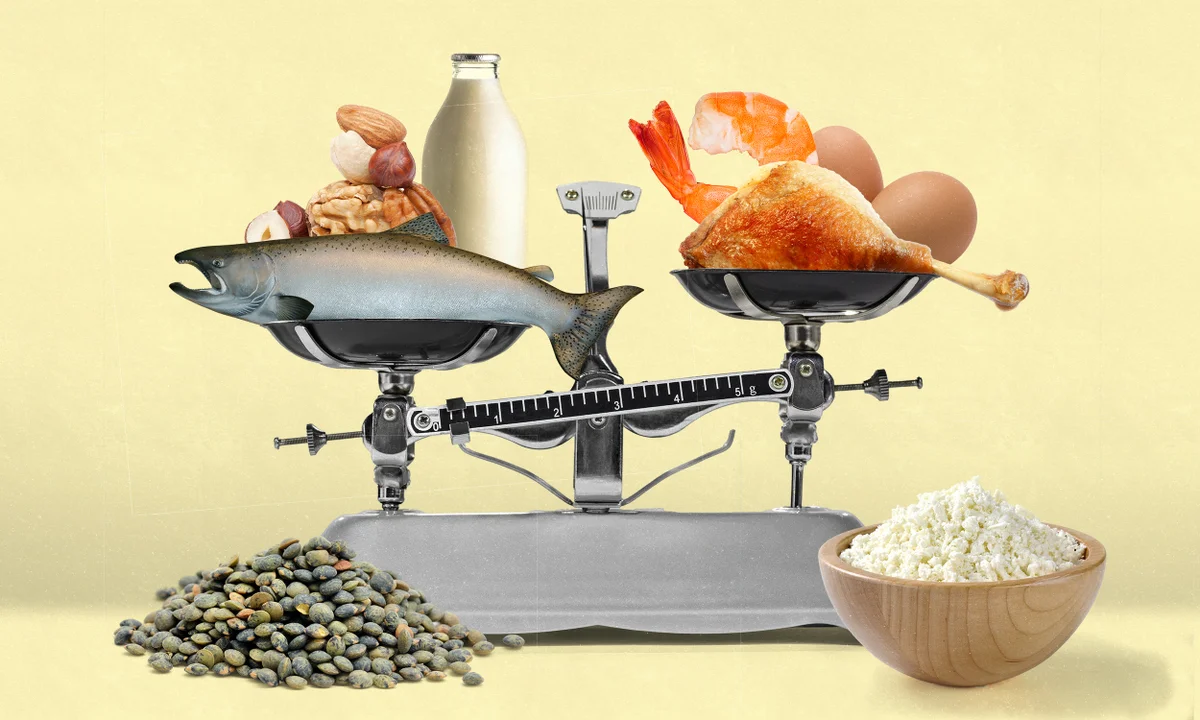
If protein had a PR team, they’d be living large right now. Shiny endorsements from shredded influencers, glossy packaging screaming “25 grams per scoop,” and a gym culture that treats it like holy water.
It’s the golden child of the food pyramid—again. But this obsession? It’s mutating into something else. Somewhere between the morning protein oats and the bedtime shake, a new kind of paranoia is brewing: Am I getting too much? And is that even a thing anymore?
By 2025, protein isn’t just food—it’s a status symbol. It’s your ticket to being taken seriously in fitness circles, your badge of health-conscious honor.
People throw macros around like they’re stock tickers, and God forbid you eat a banana without pairing it with Greek yogurt.
The pendulum swung hard—so hard, in fact, that we’ve bulldozed past “enough” and slammed straight into excess. And unlike your leftover scoop of whey, the consequences won’t just sit quietly in the cupboard.
You’ve probably seen it. The friend who eats like a bodybuilder but hasn’t lifted more than a water bottle. The coworker sipping pea protein in meetings like it’s green tea. The parents sneaking collagen powder into their kids’ lunchboxes.
Everyone’s bulking—but no one’s training. It’s not just athletes anymore. It’s the girl at the café with a protein muffin the size of a toddler’s head. It’s your uncle, who now refers to eggs as “nature’s preworkout.”
And let’s call out the elephant in the smoothie: your kidneys aren’t thrilled. High protein intake can tax the body—especially when you’re not balancing it with fiber, hydration, or actual movement.
We’re packing our diets with so many protein bars, powders, and fortified snacks, we’ve turned digestion into a war zone. It’s like stuffing your suitcase with bricks and wondering why your back hurts.
Over time, the body’s quiet signals—fatigue, bloat, mood swings—start turning up the volume. But you’re too busy tracking your macros to listen.
This isn’t about fear-mongering or canceling protein. Hell no. Protein is essential, and the science backs that up. But when marketing hijacks nutrition, moderation gets kicked to the curb.
We stop listening to our bodies and start chasing grams. We trade satiety for stats. We forget that food isn’t just fuel—it’s texture, memory, joy.
Protein alone won’t save your gut, tone your muscles, or boost your longevity. You need the whole damn orchestra, not just the loudest trumpet.
And let’s talk money. Ever looked at the price tag of “clean” protein products lately? It’s like paying rent to eat a cookie. We’ve managed to gentrify food itself—protein-rich means premium-priced.
We’ve built a wellness industry that profits off your insecurity. You’re not buying nutrition; you’re buying peace of mind with a shiny label and 30g stamped on it.
Most people already get more than enough protein through regular meals—yes, even vegetarians. But the narrative says otherwise.
The gym bros, the TikTok “experts,” the supplement companies—they all whisper the same thing: more is better.
Because if they convince you you’re deficient, they’ve already sold the solution. Protein deficiency sells like hotcakes. Irony? Hotcakes probably have protein added now too.
What’s wild is how quickly we forgot the basics. Balance. Diversity. Whole damn meals. Not just powdered “solutions” in plastic tubs that taste like milky cardboard.
There’s beauty in a plate of mixed food. There’s wisdom in simplicity. You don’t need to reinvent the wheel with every bite—you just need to stop turning food into a math equation.
So yeah, maybe take a breath before adding “extra” protein to your next meal. Maybe ask yourself why you’re doing it. Are you hungry? Are you building muscle? Or are you just terrified you’re not optimizing enough?
As they say, too much of a good thing is just… too much. And protein? It’s a good thing. But in 2025, it’s being worshipped like a god—and worship always demands a sacrifice.
“The food you eat can be either the safest and most powerful form of medicine, or the slowest form of poison.” — Ann Wigmore
Ain’t that the tea.









